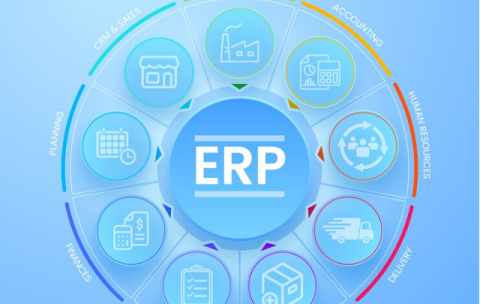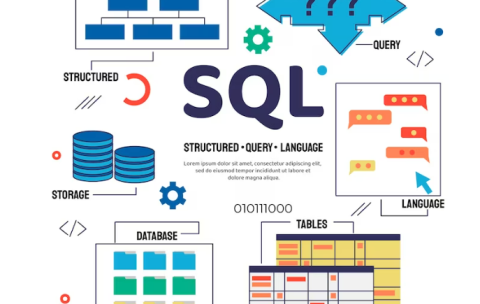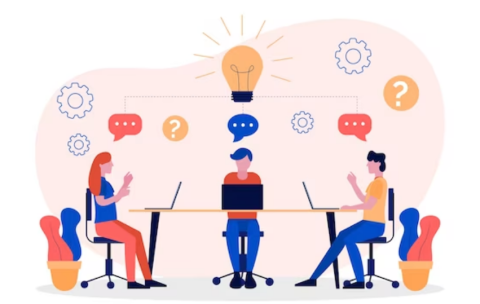Popular Instructors
All Skillset Courses
Time Management and Productivity
Time Management and Productivity are critical skills in the fast-paced …
What you'll learn
Module 1: Fundamentals of Time Management (4 hours)
Session 1.1: Understanding Time Management (2 hours)
Introduction to time management and its importance
Self-assessment: Personal time management evaluation
Principles of effective time management
Session 1.2: Setting Goals and Priorities (2 hours)
Techniques for setting SMART goals
Prioritizing tasks using methods like Eisenhower Matrix
Exercise: Setting personal and professional goals
Module 2: Planning and Organizing (4 hours)
Session 2.1: Strategic Planning and Scheduling (2 hours)
Creating effective plans and schedules
Tools for planning (calendars, planners, apps)
Activity: Developing a weekly plan
Session 2.2: Organizational Skills for Productivity (2 hours)
Techniques for organizing work and personal spaces
Systems for managing paperwork and digital files
Workshop: Organizational system setup
Module 3: Overcoming Time Management Challenges (4 hours)
Session 3.1: Managing Distractions and Interruptions (2 hours)
Identifying and dealing with common distractions
Strategies for managing interruptions
Group discussion: Sharing experiences and strategies
Session 3.2: Dealing with Procrastination (2 hours)
Understanding the psychology of procrastination
Strategies to overcome procrastination
Exercise: Implementing anti-procrastination techniques
Module 4: Advanced Time Management Techniques (4 hours)
Session 4.1: Leveraging Technology for Time Management (2 hours)
Exploring time management and productivity tools
Integrating technology effectively into time management strategies
Hands-on session: Using productivity apps
Session 4.2: Time Management for Teams (2 hours)
Collaborative time management techniques
Managing team deadlines and priorities
Role-play: Leading a time-sensitive project
Module 5: Building and Sustaining Productivity Habits (4 hours)
Session 5.1: Developing Personal Productivity Habits (2 hours)
Building and maintaining productive habits
Techniques for continuous self-improvement
Workshop: Habit formation and tracking
Session 5.2: Integrating Time Management into Daily Life (2 hours)
Applying time management skills in real-life scenarios
Work-life balance and maintaining productivity
Group activity: Developing a personal time management plan
Additional Elements:
Guest Speakers: Time management experts or professionals sharing personal experiences and tips.
Interactive Activities: Workshops, group discussions, and role-plays.
Assignments: Time audits, goal setting exercises, and productivity plan development.
Feedback and Assessment: Peer reviews, instructor feedback, and a final presentation or report on personal time management strategies.
This course aims to provide MBA students with the skills and techniques necessary to effectively manage their time, increase productivity, and maintain a healthy work-life balance.
Critical Thinking and Problem-Solving
Critical Thinking and Problem-Solving are essential skills in the contemporary …
What you'll learn
Module 1: Foundations of Critical Thinking (4 hours)
Session 1.1: Introduction to Critical Thinking (2 hours)
Understanding critical thinking and its importance in business
Elements and standards of critical thought
Interactive activity: Identifying examples of critical thinking in business scenarios
Session 1.2: Barriers to Critical Thinking (2 hours)
Common cognitive biases and logical fallacies
Strategies to overcome these barriers
Group discussion: Analyzing case studies with cognitive biases
Module 2: Advanced Critical Thinking Skills (4 hours)
Session 2.1: Analytical Thinking and Decision Making (2 hours)
Techniques for systematic analysis and evaluation
Decision-making models and tools
Exercise: Applying analytical tools in case studies
Session 2.2: Creative Thinking and Innovation (2 hours)
Techniques to foster creativity and innovation
Balancing analytical and creative thinking
Creative brainstorming session: Developing innovative solutions to business problems
Module 3: Problem-Solving Strategies (4 hours)
Session 3.1: Systematic Problem-Solving Approaches (2 hours)
Problem-solving methodologies (e.g., root cause analysis, PDCA cycle)
Structuring and prioritizing problems
Workshop: Solving structured business problems
Session 3.2: Complex and Unstructured Problem Solving (2 hours)
Approaches for complex and unstructured problems
Case studies: Solving real-world business problems
Group exercise: Collaborative problem-solving
Module 4: Application in Business Contexts (4 hours)
Session 4.1: Critical Thinking in Strategic Planning (2 hours)
Applying critical thinking in strategy formulation and execution
Scenario planning and risk assessment
Group activity: Developing a strategic plan for a case study company
Session 4.2: Problem-Solving in Leadership and Management (2 hours)
The role of critical thinking and problem-solving in leadership
Managing team problem-solving dynamics
Role-play: Leading a problem-solving meeting
Module 5: Integrating Critical Thinking and Problem-Solving Skills (4 hours)
Session 5.1: Integrative Case Studies (2 hours)
Comprehensive case studies integrating critical thinking and problem-solving
Group analysis and presentation of solutions
Session 5.2: Developing a Personal Action Plan (2 hours)
Reflecting on personal critical thinking and problem-solving skills
Developing a plan for ongoing skill development
Peer review and feedback on action plans
Additional Elements:
Guest Speakers: Experts and practitioners sharing their experiences in applying critical thinking and problem-solving in business.
Interactive Activities: Group discussions, case analyses, and role-playing exercises.
Assignments: Reflective essays, case study analyses, and action plan development.
Feedback and Assessment: Continuous feedback during activities and a final assessment based on a case study presentation or action plan review.
This course structure is designed to equip MBA students with robust critical thinking and problem-solving skills, preparing them for complex decision-making and strategic planning in their professional careers.
Emotional Intelligence and Interpersonal Skills
Emotional Intelligence (EI) and Interpersonal Skills are crucial competencies in …
What you'll learn
Module 1: Introduction to Emotional Intelligence (EI) (3 hours)
Session 1.1: Understanding EI and Its Importance (1.5 hours)
Introduction to EI concepts
The significance of EI in professional and personal settings
Self-assessment: Identifying personal EI levels
Session 1.2: Components of EI (1.5 hours)
Exploring the five components of EI: self-awareness, self-regulation, motivation, empathy, social skills
Interactive activity: Recognizing EI traits in various scenarios
Module 2: Self-Awareness and Self-Regulation (4 hours)
Session 2.1: Developing Self-Awareness (2 hours)
Techniques for enhancing self-awareness
Understanding and managing emotions
Reflection exercise: Personal emotional analysis
Session 2.2: Mastering Self-Regulation (2 hours)
Strategies for managing impulses and emotional reactions
Stress management techniques
Group exercise: Role-playing challenging situations
Module 3: Empathy and Social Skills (4 hours)
Session 3.1: Cultivating Empathy (2 hours)
Understanding and developing empathy
The role of empathy in effective communication and relationship building
Empathy exercises: Perspective-taking activities
Session 3.2: Enhancing Social Skills (2 hours)
Effective communication and interpersonal interaction
Building rapport and networking skills
Interactive session: Practicing networking in a simulated setting
Module 4: EI in Leadership and Teamwork (4 hours)
Session 4.1: EI in Leadership (2 hours)
The impact of EI on leadership effectiveness
Leadership styles and emotional intelligence
Case study analysis: Leaders with high EI
Session 4.2: EI in Team Dynamics (2 hours)
Promoting a positive team environment using EI
Conflict resolution and collaboration
Team activity: EI in team problem-solving
Module 5: Practical Application and Development (5 hours)
Session 5.1: Personal EI Development Plan (2.5 hours)
Creating a personal plan for developing EI
Setting goals and identifying resources for EI improvement
Workshop: Developing and sharing personal EI plans
Session 5.2: Integrating EI in Professional Scenarios (2.5 hours)
Applying EI skills in business contexts (negotiations, customer relations, etc.)
Role-play scenarios: Implementing EI in complex situations
Group discussion and feedback
Additional Elements:
Guest Speakers: Industry professionals sharing insights on the importance of EI in business.
Interactive Activities: Role-plays, group discussions, and self-reflection exercises.
Assignments: Journaling emotional responses, EI development plans, and case study reports.
Feedback and Assessment: Continuous feedback from peers and instructors, and a final presentation on the personal EI development plan.
This course aims to enhance MBA students' understanding and application of emotional intelligence and interpersonal skills, vital for personal growth and professional success.
Communication Skills
Communication Skills are vital in the business world, particularly for …
What you'll learn
Module 1: Fundamentals of Communication (3 hours)
Session 1.1: Introduction to Communication Skills (1.5 hours)
Overview of communication in business
Verbal, non-verbal, and written communication
Barriers to effective communication
Session 1.2: Non-Verbal Communication and Body Language (1.5 hours)
Understanding body language
Role of non-verbal cues in communication
Practical exercises
Module 2: Verbal Communication Skills (4 hours)
Session 2.1: Public Speaking and Presentation Skills (2 hours)
Techniques for effective public speaking
Structuring and delivering presentations
Interactive presentation practice
Session 2.2: Active Listening and Feedback (2 hours)
Principles of active listening
Giving and receiving constructive feedback
Listening exercises and role-play
Module 3: Written Communication Skills (4 hours)
Session 3.1: Business Writing Basics (2 hours)
Professional email and report writing
Clarity, tone, and conciseness in business writing
Writing exercises
Session 3.2: Advanced Business Documents (2 hours)
Crafting proposals and executive summaries
Persuasive writing techniques
Case studies and document analysis
Module 4: Interpersonal Communication (3 hours)
Session 4.1: Effective Interpersonal Skills (1.5 hours)
Building rapport and trust
Cultural sensitivity in communication
Role-playing scenarios
Session 4.2: Conflict Resolution and Difficult Conversations (1.5 hours)
Strategies for conflict resolution
Navigating difficult conversations
Group activities and discussions
Module 5: Communication in Teams and Leadership (3 hours)
Session 5.1: Team Communication Dynamics (1.5 hours)
Communication in teams and groups
Facilitating effective team meetings
Team communication exercises
Session 5.2: Communication for Leaders (1.5 hours)
Leadership communication styles
Influence and persuasion
Case studies and leadership scenarios
Module 6: Communication in a Digital World (3 hours)
Session 6.1: Digital Communication Tools and Etiquette (1.5 hours)
Email, social media, and virtual meeting etiquette
Leveraging digital tools for effective communication
Practical applications and simulations
Session 6.2: Managing Remote and Cross-Cultural Teams (1.5 hours)
Challenges of remote communication
Cross-cultural communication strategies
Interactive group exercises
Additional Elements:
Guest Speakers: Industry professionals discussing real-world communication challenges and solutions.
Interactive Activities: Role plays, group discussions, and communication games.
Assignments: Creating presentations, writing business documents, and conducting meeting simulations.
Feedback and Assessment: Peer evaluations, instructor feedback, and a final communication project or presentation.
This structure is designed to provide MBA students with a comprehensive understanding of communication skills, balancing theory with practical, real-world applications.
Leadership and Team Management
Leadership and Team Management is a critical area of study, …
What you'll learn
Module 1: Introduction to Leadership (2 hours)
Session 1.1: Understanding Leadership (1 hour)
Definition of leadership
Leadership vs. Management
Leadership theories and styles
Session 1.2: Self-Assessment and Leadership (1 hour)
Leadership self-assessment tools
Identifying personal leadership style
Strengths and areas for improvement
Module 2: Core Leadership Skills (4 hours)
Session 2.1: Effective Communication and Active Listening (2 hours)
Communication in leadership
Active listening techniques
Giving and receiving feedback
Session 2.2: Emotional Intelligence in Leadership (2 hours)
Understanding emotional intelligence
EI for leadership effectiveness
Case studies and role plays
Module 3: Team Dynamics and Management (4 hours)
Session 3.1: Building and Managing Teams (2 hours)
Stages of team development
Team composition and diversity
Creating a positive team culture
Session 3.2: Conflict Resolution and Problem Solving (2 hours)
Conflict types and resolution strategies
Problem-solving in teams
Case simulations
Module 4: Strategic Leadership and Decision Making (4 hours)
Session 4.1: Vision, Strategy, and Execution (2 hours)
Developing a strategic vision
Aligning team with organizational goals
Execution of strategies
Session 4.2: Decision Making and Critical Thinking (2 hours)
Decision-making processes
Critical thinking skills
Decision-making exercises
Module 5: Motivation and Influencing Others (3 hours)
Session 5.1: Motivating Teams and Individuals (1.5 hours)
Motivation theories
Motivating diverse teams
Case studies
Session 5.2: Influence and Persuasion Skills (1.5 hours)
Influence without authority
Persuasion techniques
Influencing exercises
Module 6: Practical Leadership Challenges (3 hours)
Session 6.1: Leading Change and Innovation (1.5 hours)
Change management
Leading innovative teams
Group discussion on change scenarios
Session 6.2: Ethical Leadership and Social Responsibility (1.5 hours)
Ethics in leadership
Corporate social responsibility
Ethical dilemma case studies
Additional Elements:
Guest Speakers: Invite industry leaders to share real-world insights (integrated within relevant modules).
Interactive Activities: Group discussions, role-plays, and leadership simulations.
Assignments: Reflection papers, case study analysis, and leadership project proposals.
Feedback and Assessment: Peer reviews, instructor feedback, and a final leadership strategy project.
This structure aims to provide a comprehensive understanding of leadership and team management, combining theoretical knowledge with practical application, relevant for MBA students.
IBM Cognos Analytics – Empowering Decisions with IBM Cognos Analytics
IBM Cognos Analytics – Empowering Decisions with IBM Cognos Analytics …
What you'll learn
Week 1: Introduction to IBM Cognos Analytics (4 Hours)
Session 1 (2 Hours): Overview of IBM Cognos Analytics
Introduction to Business Intelligence and the Role of IBM Cognos Analytics
Navigating the IBM Cognos Analytics Interface
Overview of Key Features and Capabilities
Session 2 (2 Hours): Basic Reporting and Dashboarding
Connecting to Data Sources in Cognos
Creating Simple Reports and Dashboards
Basic Data Visualization Techniques
Week 2: Advanced Reporting and Data Exploration (6 Hours)
Session 3 (2 Hours): Advanced Reporting Techniques
Building Advanced Reports (List, Crosstab, and Chart Reports)
Applying Filters, Prompts, and Calculations
Report Formatting and Styling for Clarity and Impact
Session 4 (2 Hours): Interactive Dashboards and Visualization
Designing Interactive Dashboards
Advanced Visualization Techniques in Cognos
Using Drill-Throughs for Detailed Data Analysis
Session 5 (2 Hours): Data Exploration and Analysis
Exploratory Data Analysis in Cognos Analytics
Utilizing Cognos for Trend Analysis and Pattern Discovery
Integrating External Data and Leveraging Advanced Analytics
Week 3: Data Modeling and Framework Manager (6 Hours)
Session 6 (2 Hours): Introduction to Data Modeling
Basics of Data Modeling in Cognos
Creating and Managing Packages
Understanding the Framework Manager
Session 7 (2 Hours): Advanced Data Modeling Concepts
Building Dimensional Models
Working with Different Query Subjects
Implementing Security in Models
Session 8 (2 Hours): Practical Modeling Exercises
Hands-on Data Modeling Exercise
Best Practices in Data Modeling for Business Reporting
Reviewing and Optimizing Models
Week 4: Business Applications and Capstone Project (4 Hours)
Session 9 (2 Hours): Cognos Analytics in Business Contexts
Applying Cognos Analytics to Solve Business Problems
Case Studies: Cognos in Different Industry Settings
Discussing the Strategic Impact of Business Intelligence
Session 10 (2 Hours): Capstone Project and Course Wrap-Up
Developing a Comprehensive Business Intelligence Project Using Cognos Analytics
Presentation and Review of Capstone Projects
Course Summary and Pathways for Further Learning
This course should include a mix of lectures, hands-on practical exercises, and case studies. The capstone project in the final week would allow students to apply their learning to a comprehensive business intelligence task, ensuring they understand not only how to use IBM Cognos Analytics but also how to apply it strategically in a business context.
Looker Data Analytics – Unveiling Insights with Looker Data Analytics
Unveiling Insights with Looker Data Analytics is an in-depth course …
What you'll learn
Week 1: Introduction to Looker and Basic Concepts (4 Hours)
Session 1 (2 Hours): Overview of Looker and Business Intelligence
Introduction to Business Intelligence and Looker's Role
Navigating the Looker Interface
Overview of Key Features and Functionalities
Session 2 (2 Hours): Connecting Data and Basic Reporting
Setting Up and Connecting Data Sources
Creating Basic Reports (Looks) and Exploring Data
Introduction to LookML (Looker Modeling Language)
Week 2: Advanced Reporting and Visualization (6 Hours)
Session 3 (2 Hours): Advanced Reporting Techniques
Building More Complex Reports and Dashboards
Exploring Advanced Visualization Options
Utilizing Filters, Parameters, and Derived Tables
Session 4 (2 Hours): Interactive Dashboards and Data Exploration
Designing Interactive and Dynamic Dashboards
Best Practices in Dashboard Layout and User Experience
Analyzing Data Trends and Patterns
Session 5 (2 Hours): Data Exploration and Analytics
Drill-Downs and Detailed Data Analysis
Utilizing Looker for Business Analytics
Sharing Insights and Collaborative Features
Week 3: LookML and Data Modeling (6 Hours)
Session 6 (2 Hours): Introduction to LookML
Basics of LookML and its Role in Looker
Creating and Managing LookML Models
Defining Dimensions, Measures, and Views
Session 7 (2 Hours): Advanced LookML Features
Advanced Model and View Development
Utilizing LookML for Complex Data Relationships
Implementing Data Governance in Looker
Session 8 (2 Hours): Hands-on LookML Workshop
Practical Exercise in Building and Optimizing a LookML Model
Troubleshooting Common Issues in LookML
Best Practices for Scalable and Maintainable Models
Week 4: Business Application and Capstone Project (4 Hours)
Session 9 (2 Hours): Looker in the Business Context
Case Studies: Real-world Applications of Looker in Various Industries
Strategic Decision-Making with Looker
Discussing Ethical Considerations in Data Analysis
Session 10 (2 Hours): Capstone Project and Course Wrap-Up
Developing a Comprehensive Business Analytics Project using Looker
Presentation and Critique of Capstone Projects
Course Summary and Future Learning Pathways
The course should be a mix of lectures, demonstrations, hands-on exercises, and case studies. The capstone project in the final week would allow students to apply their learning to develop a full-scale business analytics project, ensuring they understand not only how to use Looker but also how to apply it strategically in a business context.






















